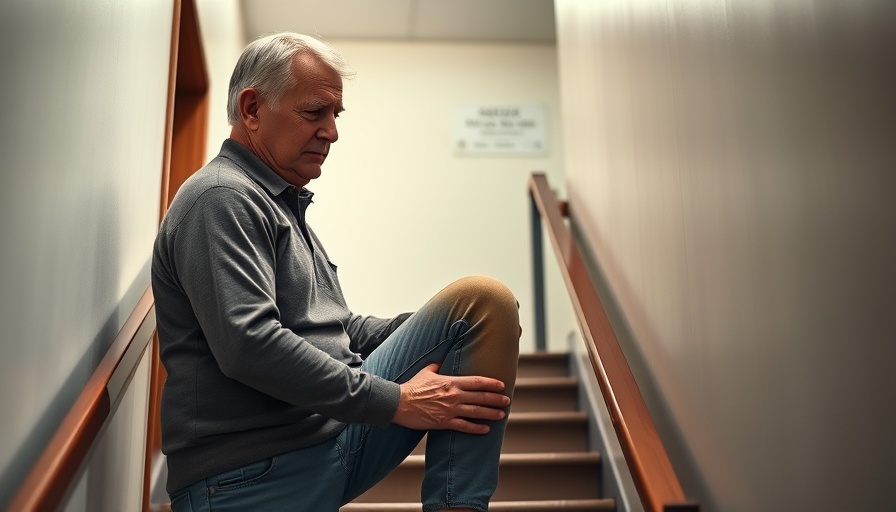
Understanding Knee Pain: A Growing Concern Among Health-Conscious Adults
Knee pain while climbing stairs is a common complaint that affects many, particularly health-conscious adults who prioritize fitness and mobility. For individuals committed to maintaining a healthy lifestyle, experiencing pain with simple activities can be both frustrating and disheartening. The causes of knee pain, especially during activities that involve repetitive motion, can range from underlying medical conditions to lifestyle factors.
Common Causes of Knee Pain While Climbing Stairs
Several factors can contribute to knee pain while navigating stairs. The pain often arises from conditions such as:
- Osteoarthritis: This degenerative joint disease typically affects older adults and is characterized by the breakdown of cartilage in the joints, leading to stiffness and pain.
- Chondromalacia Patella: Often referred to as “runner’s knee,” this condition involves the deterioration of the cartilage under the kneecap. Symptoms can manifest as pain during movement and swelling.
- Patellar Tendinitis: Commonly known as “jumper's knee,” this condition involves inflammation of the tendons connecting the kneecap to the shinbone, often due to repetitive strain.
- Muscle Imbalances: Weakness or discrepancies in muscle strength around the knee can exacerbate pain when climbing stairs.
- Previous Injuries: A history of knee injuries can put individuals at greater risk for developing pain during activities that involve climbing.
Recognizing the Signs: When to Seek Medical Advice
It is essential to recognize the signs of knee pain and understand when it is necessary to seek medical support. If knee pain is persistent, occurs during daily activities, or is accompanied by swelling, difficulty in movement, or weakness, it is vital to consult with healthcare professionals. An orthopedic specialist can conduct comprehensive evaluations to determine the underlying cause of the pain.
Practical Tips for Managing Knee Pain
Addressing your knee pain may involve a combination of self-care techniques and professional treatments:
- Rest: Taking breaks from strenuous activities allows the knee to heal, preventing further strain.
- Physical Therapy: Tailored exercises aimed at strengthening the muscles around the knee can reduce pain and enhance mobility.
- Anti-inflammatory Medications: NSAIDs (Nonsteroidal Anti-Inflammatory Drugs) can alleviate discomfort associated with inflammation.
- Knee Braces: Wearing a brace can provide stability and support to the knee joint during movement.
- Surgical Options: In some cases, procedures may be necessary to repair or realign damaged structures within the knee.
Navigating the Future: Staying Active Despite Pain
With effective management strategies and professional guidance, many individuals can continue to enjoy active lifestyles even with knee pain. Regular exercise, maintaining a healthy weight, and employing proper techniques while climbing stairs are critical in alleviating discomfort. By staying informed about the factors contributing to knee pain, individuals can better navigate their health journeys.
In Conclusion: Taking Action Against Knee Pain
Understanding the reasons behind knee pain when climbing stairs is essential for proper management and prevention. If you're experiencing knee discomfort, it's imperative that you consult with a healthcare provider who specializes in orthopedic treatments. Discovering the most effective solutions will empower you to regain your mobility and confidence in your daily activities.
Remember, investing in your health and addressing your knee pain is an opportunity to improve your overall well-being. Take the first step towards pain-free movement today!
 Add Row
Add Row  Add
Add 




 Add Row
Add Row  Add
Add 

Write A Comment